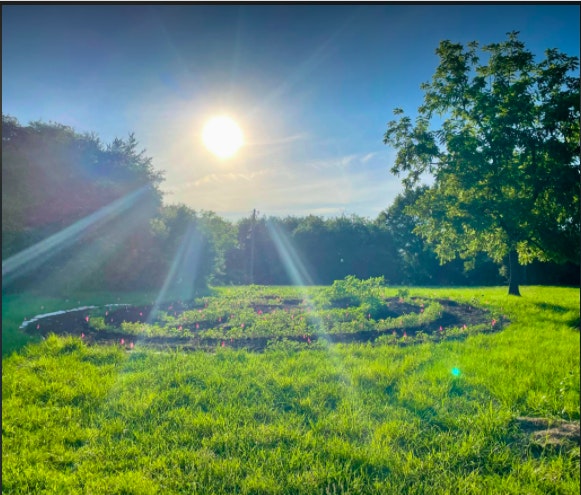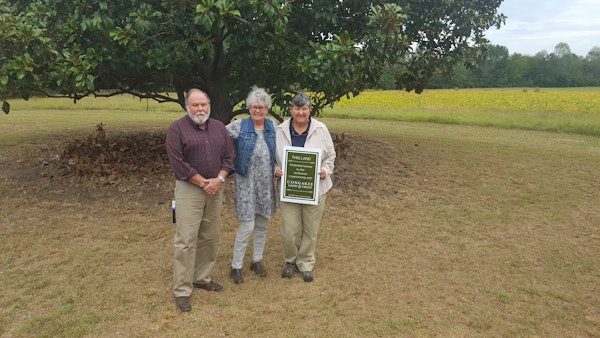Property Spotlight: Native Pollinator Garden and Maze at the Wolfram Farm
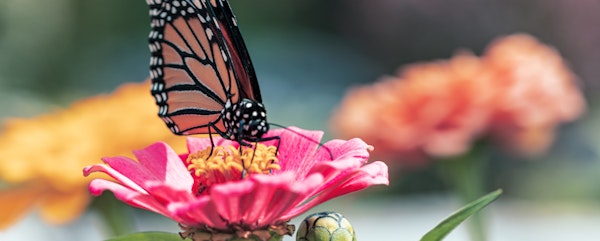
It’s National Pollinator Week! While Congaree Land Trust seeks to promote pollinator health year-round, this week is a great time to celebrate pollinators and spread the word about what we can do to protect them.
Three-fourths of the world's flowering plants depend on pollinators, such as bees, bats, beetles, and butterflies, to reproduce. Pollinators are critical to our food supply. More than 30 percent of the world’s food and flowering plants, including 130 fruits and vegetable plants, depend on insect pollination. Scientists credit insect pollinators for one out of every three bites of food eaten [USDA].
With pollinator populations in decline because of habitat loss, disease and environmental contaminants, the valuable ecosystem services provided by these bees, birds, butterflies, bats and beetles are in jeopardy. Agricultural producers and private landowners can use conservation practices to help pollinators by creating and enhancing habitat and protecting this habitat from exposure to pesticides.
One of CLT’s conservation easement partners is doing just that! Landowner Katherine Wolfram and her family are promoting pollinator health on their family’s farmland, by planting a native pollinator garden in the distinctive design of a maze.
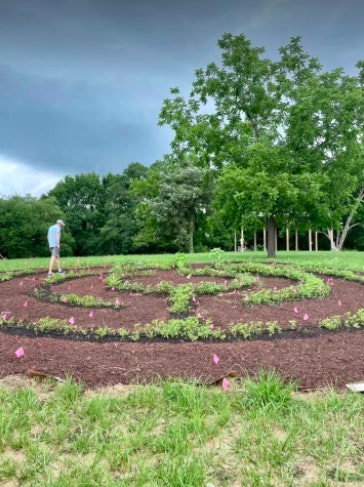
“I wanted to create a pollinator garden,” Katherine tells CLT. “A recent follower of Doug Tallamy and Robin Wall Kimmerer, I want to establish and support a healthy ecosystem on the property. A native pollinator garden is a start — food & habitat for birds and insect pollinators. I combined meditation and a garden for a meditative and interactive experience. Along the way through the maze, people will have an opportunity to check out a variety of plants and, hopefully, pollinators.”
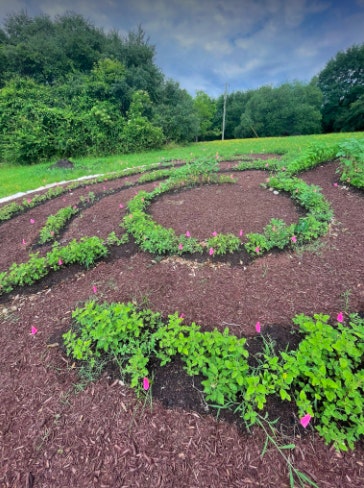
This is just the beginning. “This is Year One,” Katherine explains. “It may take time to get a sustained perennial population. Next up, Part 2: I have ordered 80 native trees for February from the SC Forest Commission.” We can’t wait to see how it goes!
Agricultural producers and private landowners can use conservation practices to help pollinators by creating and enhancing habitat and protecting this habitat from exposure to pesticides. Two-thirds of the land in the United States is privately owned, and the land management decisions of producers and landowners impact pollinators. We are thankful to our partner landowners, like the Wolframs, who continue to steward the land with conservation practices that enhance the land for future generations.
“It’s one way I can honor the land of the Indigenous people that once served as the land stewards,” Katherine tells us.
Read more about the Wolfram’s Farm and conservation easement with CLT here.
